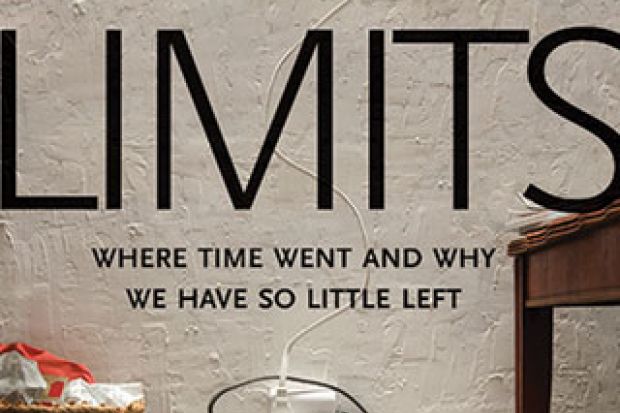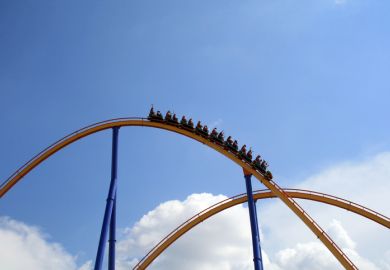In our high-tech culture, speed is all the rage – not necessarily drugs (God forbid) but so much else: communications and transportation in endless forms. We are constantly reminded that our pace of change is unprecedented; that no prior society has ever approached ours in the ability to share instantaneously experiences, feelings, news and thoughts with intimates and strangers alike across the world.
No prior society, moreover, has approached our computer-based ability to analyse almost infinite amounts of data and to extract supposedly accurate conclusions about our varied values, views and behaviours. This in turn provides an allegedly reliable crystal ball with which to make predictions of crucial importance to policymakers in both the public and private sectors.
Philosopher and cultural critic Mark Taylor does not, however, rejoice. Far from it. He almost despairs. True, other scholars have written about the cultural implications of the accelerating pace of life in the 20th and early 21st centuries. Among these is Enda Duffy’s excellent The Speed Handbook: Velocity, Pleasure, Modernism, which I reviewed in these pages in 2009. Not cited by Taylor, this work starts with Aldous Huxley’s 1931 essay “Wanted: a New Pleasure”, which claimed “Speed…provides the one genuinely modern pleasure.” Since then, as Taylor might put it, the pleasure has been fleeting (no pun intended).
Despite this omission, Speed Limits does not commit the cardinal sin of largely ignoring the past common to such best-selling pop futurists as Alvin Toffler and Faith Popcorn. A prolific scholar, Taylor has done his homework in reading widely and deeply about past technological, economic, social, cultural and, yes, theological developments that bear on our current anxieties: the almost impossible challenge of living sanely and humanely amid relentless pressures to do nearly everything faster. Reassuringly, he understands that these trends did not begin in, say, 1990, and are not limited to, for instance, fast food and computers. Instead, they are rooted in the ideas of, among others, Martin Luther, John Calvin, Adam Smith, Søren Kierkegaard, Friedrich Nietzsche, Frederick Winslow Taylor and Milton Friedman.
Yet Speed Limits makes its foremost contribution in its lucid and jargon-free synthesis of many others’ ideas rather than in its original points. Like Duffy, Taylor discusses the psychological impact in the 1800s of early trains upon passengers as their slower-paced world now sped by. Like Duffy, too, Taylor’s topics include literature, art, film, photography, fashion, advertising, news and politics. But Taylor goes much further in devoting many pages to a de facto grand narrative of how high-speed and high-volume financial markets epitomise the steady loss of human engagement; and of how traditional material products to buy and sell are being superseded in value by virtual assets and immaterial financial instruments that are ever faster to compute and to buy and sell.
Taylor draws on his own long career as an academic at Williams College and, more recently, at Columbia University to illustrate how past and present students and colleagues communicate with one another in classes and in written assignments. Rather than merely repeat the truism that today’s college students, even at the most prestigious institutions, generally do not read and write as well as their predecessors, Taylor illuminates the losses incurred by the growing substitution of online tools such as Google and Wikipedia for the good old days of sustained encounters with difficult texts that cannot be reduced to mere chunks and superficial summaries. Our obsession with speed undermines the life of the mind by reducing the enormous time required to grasp profound writings, and not just in college years. Faster, then, is not necessarily better.
Because Taylor is hardly an optimist – unlike those pop futurists who promise to save the world provided one buys their books and pays their lecture charges – he offers no panaceas. Paradoxically, he argues, only if people can change fast enough will an otherwise pending multifaceted meltdown be avoided. He pleads for the restoration of virtues that are no longer fashionable: patience, attention, deliberation, reflection and cooperation. He acknowledges modest evidence of these healthier habits.
Speed Limits is an insightful and provocative book that deserves the widest possible readership. But with one cautionary note: dear readers, please don’t rush through it.
Speed Limits: Where Time Went and Why We Have So Little Left
By Mark C. Taylor
Yale University Press, 408pp, £18.99
ISBN 9780300206470
Published 31 October 2014
Register to continue
Why register?
- Registration is free and only takes a moment
- Once registered, you can read 3 articles a month
- Sign up for our newsletter
Subscribe
Or subscribe for unlimited access to:
- Unlimited access to news, views, insights & reviews
- Digital editions
- Digital access to THE’s university and college rankings analysis
Already registered or a current subscriber? Login





